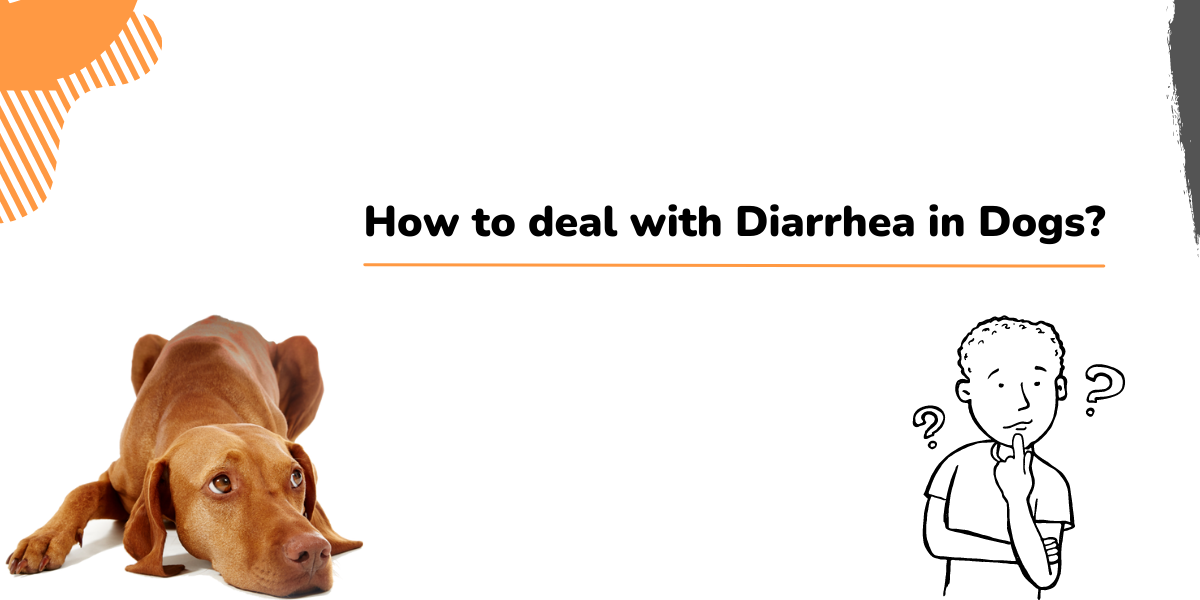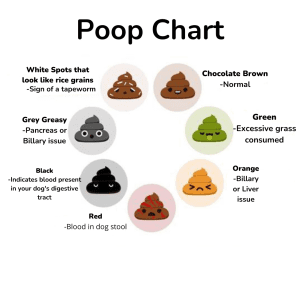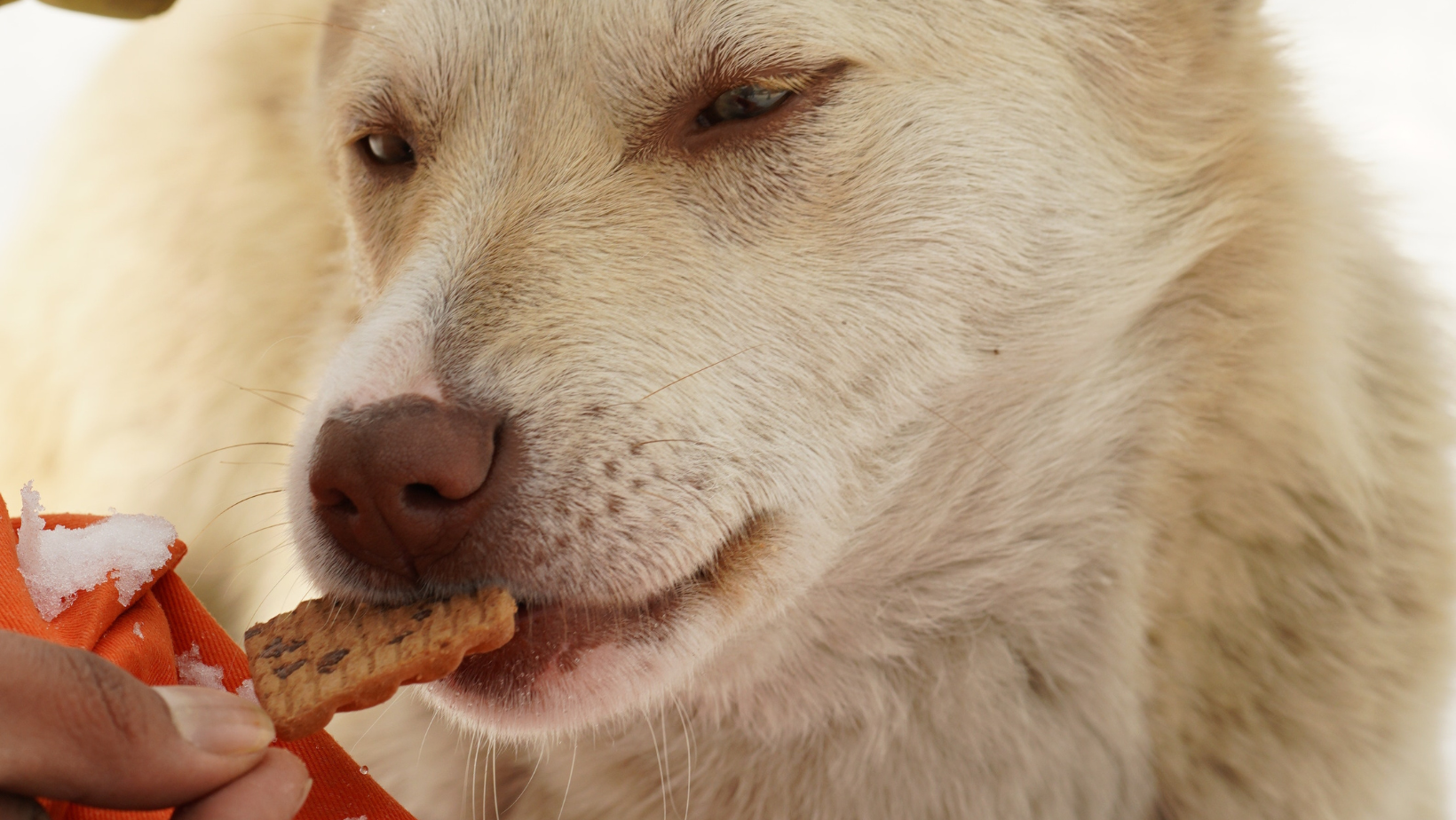How to deal with Diarrhea in Dogs?

Dog Diarrhea

Picture Credit- MentalFloss
It’s not an inviting subject to discuss, but if you own a dog, you’ve likely spent much more time cleaning up a bad brown puddle (or, to put it more nicely, dog “runs”) than you’d like to confess.
Diarrhea is a common dog illness that varies in severity, frequency, and duration from dog to dog.
However, you may not be able to completely prevent diarrhea, learning as much as you can about it will help you limit the number of times your dog has one of these unpleasant incidents and shorten the duration when it does occur. Happily, there are a number of over-the-counter diarrhea medicines available for dogs. For a consultation, you can contact us.
The Digestive System of Dogs
There are huge differences in how dogs and humans digest food.
For example, a piece of food in the mouth will start to break down due to the shape of the human jaw and salivary enzymes. Dogs, on the other hand, have lips and jaws that are designed to tear, crush, and wolf down food. Because their salivary enzymes are mainly designed to kill bacteria, they can tolerate chemicals that would send their human companions to the hospital.
Food goes quickly down the canine esophagus and into the stomach, where it is digested in chunks. Because canine stomach acids are three times stronger than human stomach acids, dogs can digest food that is mostly undamaged. Under normal circumstances, the time it takes for food to travel from the mouth to the small intestine is about 15 minutes.
Diarrhea in Dogs: The Most Common Causes
Many things disrupt this natural balance, resulting in diarrhea or, less commonly, constipation. Some things, like eating too much grass, are just not that serious. Others may indicate a life-threatening illness, such as an indigestible object lodged in the stomach (such as a rock) or a disease like cancer.
There are a number of causes for a dog’s loose stools, but the majority of cases may be related to one of these 12 factors:
Eating too much, eating junk, or eating spoiled food are some examples of dietary indiscretion. In veterinary circles, it’s referred to as “trash toxicosis” or “junk gut.”
Nutritional change: The digestive system of a dog take a few days to adjust to new proteins. That’s why many dog-food manufacturers advise switching from one type of food to another slowly over time.
- Intolerance to certain meals
- Allergies
In puppies or adults with weakened immune systems, the majority of these parasites will cause illness:
- Roundworms
- Hookworms
- Whipworms
- Giardia
- Plants or compounds that are toxic
- Swallowing an indigestible foreign body, such as a toy or a pair of socks
- Infections with viruses that are commonly found in the environment, such as:
- Parvovirus
- Distemper
- Coronavirus
- Infections caused by the bacteria, such as salmonella
Illnesses like renal and liver illness, colitis, and inflammatory intestinal disease are only a few examples. Eating too much, eating junk, or eating spoiled food are all examples of dietary indiscretion. In veterinary circles, it’s referred to as “junk toxicosis” or “trash gut.”
Change in diet: A dog’s digestive system may take a few days to adjust to new proteins. As a result, numerous dog-food manufacturers
What Do Your Dog’s Stools Say About His Health?
The consistency and color of your dog’s diarrhea tells you a lot about the cause of the issue and what’s going on in their body. When you describe the symptoms to a veterinarian, take special note of the color, consistency, and anything else that might be useful. Diarrhea usually goes away after a few days of home therapy, but it’s a good idea to call your veterinarian if it lasts for a long time or exhibits any of the symptoms that could indicate a serious condition.
Keep a watch out for the color of the poop.
Color indicate a lot about what’s going inside of your dog’s intestine. Colors like orange, green, or grey may indicate a problem with the liver, gall bladder, or pancreas. The black tarry stool is a dangerous symptom that could indicate internal hemorrhage. If you notice this, contact your veterinarian right away.
Diarrhea in Dogs: Natural Treatments
Many cases are mild, and if you follow your veterinarian’s recommendations, you may be able to avoid going to the doctor’s office. They might react to a simple treatment plan, such as:
Diarrhea Treatments for Dogs Available Over-the-Counter
These remedies are helpful to have on hand and may be obtained for quick delivery online.
Fasting
Food should be avoided for 12 to 24 hours, and small amounts of water should be provided often to clear the cause of the upset and allow the gastrointestinal tract to settle. It’s usually the first line of defense when it comes to diarrhea. Before you decide to do so on a fast, make sure your dog is in good health. Puppies and senior dogs, for example, require nutrition. Also, a fast might not be the best option.
Diarrhea in Dogs: Home Remedies
- Simple foods are usually introduced slowly after a fast. Many dog owners begin with binders, which can aid in normalizing stool consistency. The following are some tried-and-true methods:
- Rice water: Boil a large amount of high-quality rice in a large pot of water, strain out the grains, and serve the remaining creamy white soup to the dog. It will be more pleasant with a splash of broth or a spoonful of baby food.
- White rice, plain
- Pumpkin has the unusual distinction of being effective for both diarrhea and constipation (100 percent pumpkin puree from the grocery store, pumpkin powder, or a pet-specific canned pumpkin for dogs). If you can’t find a pure pumpkin, pumpkin powder made specifically for pets is a suitable substitute.
- Plain yogurt with active cultures can help dogs that are allergic to milk.
- Probiotics improve digestion by boosting live bacteria (these are also found in yogurt)
- Skinless boiled potatoes
- Cottage cheese is a type of cheese that is made
- Eggs (cooked without butter or oil) or chicken are simple protein sources (without skin)
- Fennel, for example, may have gut-soothing properties.






